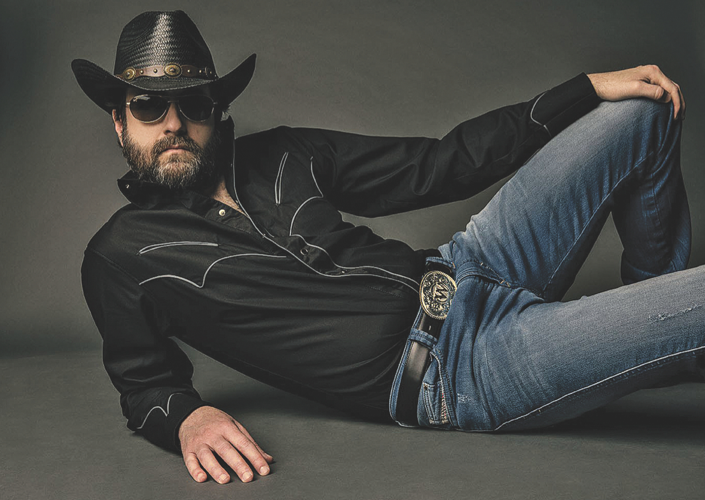
Birdcloud
“Can satire go too far?” is the wrong question. Wheeler Walker Jr. and Birdcloud don’t give a fuck what you think — and they don’t have to.
You’ll probably never hear the word “fuck” as many times as you do talking to Wheeler Walker Jr. or Birdcloud. After the hundredth time, that word, once so naughty, becomes rhythmic, like waves crashing on some obscene tropical beach. And after another hundred, it becomes something like iceberg lettuce, devoid of any real value. That’s when the words around it emerge. When the two acts take the stage at Exit/In on Friday, there’s a whole lot of fuck to go around — but it’s what’s around the word that is so much more important.
“The whole point was to piss off all these fuckers,” Walker tells the Scene via phone, 30 minutes before a radio interview he says he doesn’t care if he’s late for. “Now all the big boys want to stop by the studio and hang out.”
The “fuckers,” in this context, are most country musicians, all Music Row insiders and a good number of members of the press. Take your pick; Walker has talked shit to or gotten into Twitter beefs with the likes of Wynonna Judd, Florida Georgia Line, the Houston Press, Sam Hunt, Jake Owen, L.A. Weekly and Chris Lane. But he also has his share of supporters, from heavies like Sturgill Simpson and Chris Stapleton to Sam Outlaw.
“He isn’t entertaining simply because he writes ‘dirty’ songs,” Outlaw says. “[He] writes great songs that just happen to be dirty.”
Then there’s Birdcloud, the Nashville folk duo featuring Makenzie Green and Jasmin Kaset, possessors of equally bombastic flair. With songs like “Warshin My Big Ol’ Pussy” and “I Like Black Guys” — the latter of which recently sparked controversy when an opening act dropped off the bill at a Knoxville show, alleging the song is racist — the pair are even more outrageous live. Performing at the Scene music blog Nashville Cream’s 10th anniversary party earlier this month, Green sprayed the front row of The Basement with a bottle of beer, and some audience members didn’t look especially pleased about it.
But what you see isn’t necessarily what is, because musicians, no matter how sincere, are still crafters of their own images. The man behind Walker, Ben Hoffman, is a comedian who had a sketch show on Comedy Central in 2013. Wheeler Walker Jr. was a character on the show, performing to an unsuspecting crowd a song called “Eatin’ Pussy/Kickin’ Ass.” That song appears on Walker’s 2016 Dave Cobb-produced debut Redneck Shit. Birdcloud’s Green has been in the Nashville music scene for years, and Kaset — who also also performs less polarizing music under her own name — has had commercial licensing for some of her songs.
“With Birdcloud, it’s provocative, and if it’s provoking someone to love it or hate it, then it’s doing its job,” Kaset says. “If it’s not doing that, then I don’t know what I’m doing up there.”
It’s easy to dismiss either band with a wave, believing their songs are sophomoric and their behavior psychotic. But that would just be focusing on the “fucks,” not the words in between. Birdcloud’s much-debated “Black Guys” is, on closer examination, a statement of the protagonist’s sexual freedom, as well as his or her rejection of the culture’s racism and xenophobia. But it’s also in a voice from that environment, with all its politically incorrect verbiage.
“We’re speaking from our voices, within our experience of growing up in Tennessee,” Kaset explains, “and we’re also speaking in voices of people that we grew up around. If it sounds like it’s satire because it’s so fucked up it’s funny, that shit’s real. Those are real people, and those are true experiences. Those are actual ugly crevices of the South that we’re pointing a mirror at. If what comes out of our mouths sounds ugly and it offends you, it’s because it is ugly. It’s because that does exist.”
A survey of Walker’s material, with highlights including “Fuck You Bitch” and “Which One o’ You Queers Gonna Suck My Dick,” is similar. But listen: The first is just about a man with a broken heart. The second is just about general horniness. He says that, at its core, Redneck was written from real emotions, reimagined. “I took all the shit that I was dealing with and I put it into a record.”
The problem comes when observers pull up short without examining what both artists are doing. There is deftness and, at their cores, a truth in the music that is massively progressive considering the region it comes from.
“You know how many fucking straight people have told me that ‘Which One o’ You Queers Gonna Suck My Dick’ is homophobic?” asks Walker. “A lot. You know how many gay people have told me it’s homophobic? Zero. They fucking love it.
“It ain’t homophobic,” he continues. “It’s homosexual. It’s just a guy sucking another guy’s dick. [But] they see the cowboy hat and they see the cowboy shirt and they see that it’s a country record, and they see something about two guys blowing each other, and they just assume it’s homophobic. Fuck you.”
What Walker Jr. and Birdcloud are doing is offering commentary on what it means to be Southern at a time when norms on race and sexuality have never been more challenged. Kaset and Green were born and raised in Tennessee, and Hoffman grew up in Lexington, Ky. If not the South’s own, who is more qualified to critique its culture?

Wheeler Walker Jr.
One could argue that effecting change is more persuasive through an eloquently worded essay. Well, fuck that; this is ignorant of the historical role of satire. The quintessential example in the English language, Jonathan Swift’s A Modest Proposal, was in response to what was called “The Irish Problem,” a blanket term for the rampant poverty in the country. Originally published without byline, it mocks cruel attitudes by suggesting the solution for the humanitarian crisis was simply to eat the children.
Birdcloud came under fire in Knoxville in late August for the perceived racism of “Black Guys,” which then fueled condemnation from a portion of the Nashville music community. One, Austin Edwards of bands Sun Seeker and Watcher, posted on his Facebook page that the song was “an egregious example of how making assumptions about a scene being liberal and socially conscious can lead to racism being unchecked.” He added that the song’s biggest sin was in its approach to “the sensitivity of the subject matter.”
Edwards, in talking with the Scene, says the song “[acts] out on white guilt in the form of fetishizing someone of a different race.” He adds, “An apology or a statement of some kind would be awesome and would not even be that hard.”
Edwards, who was once a member of a band called Black Boyfriend, sees no contradiction in the fact that his opinion is both subjective and, in his view, right. But others argue the sensitivity of the subject matter and puncturing it with brashness is what makes satire difficult, and sometimes essential.
Birdcloud has demurred in apologizing or even second-guessing their work. “Race, gender and sex are hard to talk about, but we encourage you to try and discuss them anyway, and we will continue to discuss them with the words of our choosing,” the band said in a release.
Walker, recalling his Twitter spat with Judd, offers this defense of his offensiveness:
“She was saying, ‘You got those nasty songs or nasty words, you go out in the woods and yell them, and then you go and make your record.’ Now, all respect to the family and Wynonna, that’s the exact opposite of what I want to hear when I listen to music. I want to hear what you’re dealing [with], and hopefully it’s something I can identify with and it’ll help me get through the day. If you’re going out in the woods screaming nasty words, fucking record that.”
Email music@nashvillescene.com






